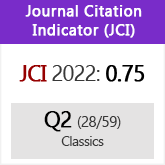Memoria y tiranía en la Confederación Aquea helenística (s. III-II a.C.)
DOI:
https://doi.org/10.3989/emerita.2015.07.1335Palabras clave:
Confederación Aquea, tiranía, memoria colectivaResumen
El otorgamiento de amnistías a varios tiranos peloponesios durante la expansión de la Confederación Aquea helenística no ha sido estudiado. En este artículo se propone analizar algunos aspectos políticos y culturales de esta importante práctica tomando en cuenta los desarrollos teóricos e historiográficos recientes en el campo de estudios sobre memoria colectiva e identidad. En ese sentido, se explorará aquí el alcance de la amnistía garantizada a estos regímenes tiránicos, enfocando en cómo los miembros de la élite política aquea eligieron recordar y no olvidar a los tiranos y construir una visión colectiva y compartida del pasado en la cual la lucha contra ellos se volvió una piedra angular para el proceso de definición de su identidad.
Descargas
Citas
Ager, S. 1996: Interstate Arbitrations in the Greek World (337-90 B.C.), Berkeley.
Assman, J. 2008: Religión y memoria cultural. Diez Estudios, Buenos Aires.
Aymard, A. 1938: Les Assemblées de la Confédération Achaienne. Étude Critique d’Institutions et d’Histoire, Burdeos.
Aymard, A. 1970 [1938]: Les premiers rapports de Rome et de la Confédération Achaienne (198-189 avant. J.-C.), Roma.
Bastini, A. 1987: Der achäische Bund als hellenische Mittelmacht. Geschichte des achäischen Koinon in der Symmachie mit Rom, Fráncfort del Meno.
Beck, H. 1997: Polis und Koinon. Untersuchungen zur Geschichte und Struktur der griechischen Bundesstaaten im 4. Jahrhundert v. Chr., Stuttgart.
Bourdieu, P. 2010 [1980]: El Sentido práctico, Buenos Aires.
Briscoe, J. 2003 [1981]: A Commentary on Livy. Books XXXIV-XXXVII, Oxford.
Briscoe, J. 2008: A Commentary on Livy. Books XXXVIII-XL, Oxford.
Burke, P. 1989: «History as Social Memory», en Butler, Th. (ed.), History, Culture, and the Mind, Nueva York, pp. 97-113.
Carlsson, S. 2010: Hellenistic Democracies. Freedom, Independence and Political Procedure in Some East Greek City-States, Stuttgart.
Didu, I. 1993: La fine della Confederazione Achea. Lotta politica e rapporti con Roma dal 180 al 146 a.C., Cagliari.
Dubois, M. 1885: Les ligues étolienne et achéenne. Leur histoire et leurs institutions. Nature et durée de leur antagonisme, París.
Ellis-Evans, A. 2012: «The Tyrants Dossier from Eresos», Chiron 42, pp. 183-212.
Engels, J. 1993: «Die ‘ΥΠΟΜΝΗΜΑΤΑ-Schriften und die Anfänge der politischen Biographie und Autobiographie in der Griechischen Literatur», ZPE 96, pp. 19-36.
Errington, R. 1967: «Philip, Aratos and the ‘Conspiracy of Apelles’», Historia 16, pp. 19-36.
Errington, R. 1969: Philopoemen, Oxford.
Ferrabino, A. 1972 [1921]: Il problema dell’unitá nazionale nella Grecia antica, vol. 1, Arato di Sicione e l’idea nazionale, Roma.
Flower, H. 2006: The Art of Forgetting. Disgrace and Oblivion in Roman Political Culture, Chapel Hill.
Freeman, E. 1863: History of Federal Government from the Foundation of the Achaian League to the Disruption of the United States, vol. 1, Londres-Cambridge.
Gangloff, A. (ed.) 2013: Lieux de mémoire en Orient grec à l’époque impériale, Berna.
Ginzburg, C. 2010 [2006]: El hilo y las huellas. Lo verdadero, lo falso, lo ficticio, Buenos Aires.
Golan, D. 1973: «Aratus’ Policy between Sicyon and Argos: An Attempt at Greek Unity», RSA 3, pp. 59-70.
Golan, D. 1974: «Philopoemen immodicus and superbus and Sparta», SCI 1, 1974, pp. 29-39.
Grainger, J. 1999: The League of the Aetolians, Leiden.
Green, P. 1990: Alexander to Actium. The Historical Evolution of Hellenistic Age, Berkeley.
Haake, M. y Jung, M. (eds.) 2011: Griechische Heiligtu.mer als Erinnerungsorte: von der Archaik bis in den Hellenismus, Stuttgart.
Halbwachs, M. 2004 [1950]: Los marcos sociales de la memoria, Barcelona.
Jelin, E. y Langland, V. 2003 [2002]: «Introducción: Las marcas territoriales como nexo entre pasado y presente», en Jelin, E. y Langland, V. (comps.), Monumentos, memoriales y marcas territoriales, Madrid, pp. 1-18.
Kansteiner, W. 2002: «Finding Meaning in Memory: A Methodological Critique of Collective Memory Studies», H&T 41, 2, pp. 179-197.
Klatt, M. 1877: Forschungen zur Geschichte des achäischen Bundes, I. Quellen und Chronologie des Kleomenischen Krieges, Berlín.
Koehn, C. 2007: Krieg-Diplomatie-Ideologie. Zur Aussenpolitik hellenistischer Mittelstaaten, Stuttgart.
Koehn, C. 2013: «Polybios und die Inschriften. Zum Sprachgebrauch des Historikers», en Grieb, V. y Koehn, C. (eds.), Polybios und seine Historien, Stuttgart, pp. 159-181.
Lafond, Y. 2006 : La mémoire des cités dans la Péloponnèse d’époque romaine (IIe siècle av. J.-C.- IIIe siècle après J.-C.), Rennes.
Larsen, J. 1968: Greek Federal States. Their Institutions and History, Oxford.
Lehmann, G. 2001: Ansätze zu einer Theorie des griechischen Bundesstaates bei Aristoteles und Polybios, Gotinga.
Loraux, N. 2008 [1997]: La ciudad dividida. El olvido en la memoria de Atenas, Buenos Aires.
Lozano, A. 2005: «El problema de la ciudadanía en los estados federales griegos de Época Helenística. El caso de la Confederación Aquea», en Simón, F., Pina Polo, F. y Remesal Rodríguez, J. (eds.), Repúblicas y ciudadanos: modelos de participación cívica en el mundo antiguo, Barcelona, pp. 115-129.
Luraghi, N. 2008: The Ancient Messenians, Cambridge.
Ma, J. 2009: «The City as Memory», en Boys-Stones, G., Graziosi, B. y Vasunia, P. (eds.), The Oxford Handbook of Hellenic Studies, Oxford, pp. 248-259.
Ma, J. 2012: «Honorific Statues and Hellenistic History», en Smith, C. y Yarrow, L. M. (eds.), Imperialism, Cultural Politics, and Polybius, Oxford, pp. 230-251.
Marasco, G. 1981: Commento alle Biografie Plutarchee di Agide e di Cleomene, vol. 2, Roma.
Meadows, A. 2013: «Polybius, Aratus, and the History of the 140th Olympiad», en Gibson, B. y Harrison, Th. (eds.), Polybius and his world. Essays in memory of F. W. Walbank, Oxford, pp. 91-116.
Moreno Leoni, A. 2013: «La unidad del Peloponeso. De la imaginación a la territorialización en la Confederación Aquea helenística durante los siglos III-II a.C.», Polis 25, pp. 99-127.
Mossé, C. 1969: La tyrannie dans la Grèce antique, París.
Nottmeyer, H. 1995: Polybios und das Ende des Achaierbundes. Untersuchungen zu den römisch-achaischen Beziehungen, ausgehend von der Mission des Kallikrates bis zur Zerstörung Korinths, Múnich.
Ober, J. 2003: «Tyrant Killing as Therapeutic Stasis: A political debate in images and texts», en Morgan, K. (ed.), Popular Tyranny. Sovereignity and its Discontents in Ancient Greece, Austin, pp. 215-250.
O’Neil, J. 1984/6: «Political elites in the Achaian and Aitolian leagues», AncSoc 15-17, pp. 33-61.
Orsi, D. 1990: «Il tema antitirannico nella ‘Vita di Arato’ Plutarchea», GB 17, pp. 147-162.
Orsi, D. 1991: L’Alleanza Acheo-Macedone. Studio su Polibio, Bari.
Page, T. E. 1942: Greek Literary Papyri, vol. 1, Londres.
Pascual, J. 2007: «La sympoliteia griega en las épocas clásica y helenística», Gerión 25, 1, pp. 167-186.
Pédech, P. 1964: La méthode historique de Polybe, París.
Ricoeur, P. 2004 [2000]: La memoria, la historia, el olvido, Buenos Aires.
Rizakis, A. 1995: Achaie I. Sources Textuelles et Histoire Regionale, París.
Savalli-Lestrade, I. 2009: «Usages civiques et usages dynastiques de la damnatio memoriae dans le monde hellénistique (323-30 av. J.-C.)», en Benoist, St. et al. (eds.), Mémoires partagées, mémoires disputées. Écriture et réécriture de l’histoire, Metz, pp. 127-158.
Scholten, J. 2000: The Politics of Plunder: Aitolians and their Koinon in the Early Hellenistic Era, 279-217 B.C., Berkeley.
Teegarden, D. 2007: Defending Democracy: A Study of Ancient Greek Anti-Tyranny Legislation, PhD Dissertation, Princeton, mimeo.
Texier, J. G. 1975: Nabis, París.
Tomlinson, R. A. 1972: Argos and the Argolid. From the End of the Bronze Age to the Roman Occupation, Bristol.
Urban, R. 1979: Wachstum und Krise des Achäischen Bundes. Quellenstudien zur Entwicklung des Bundes von 280 bis 222 v. Chr., Wiesbaden.
Vatin, C. 1975: «Polybe, Plutarque et la mort de Machanidas sous les coups de Philopoemen», en Association G. Budé, Actes du IX Congrès, Rome 13-18 avril 1973, París.
Veyne, P. 2005: «L’identité grecque contre et avec Rome», en L’empire grécoromain, París, pp. 205-215.
Walbank, F. 1933: Aratos of Sicyon, Cambridge.
Walbank, F. 1999a [1957]: A Historical Commentary on Polybius, vol. 1, Oxford.
Walbank, F. 1999b [1967], A Historical Commentary on Polybius, vol. 2, Oxford.
Walbank, F. 1999c [1979], A Historical Commentary on Polybius, vol. 3, Oxford.
Walbank, F. 2006a [1984]: «Macedonia and Greece», CAH2 VII.1, pp. 219-256.
Walbank, F. 2006b [1984]: «Macedonia and the Greek Leagues», CAH2 VII.1, pp. 446-481.
Wilcken, U. 1895: «Aristomachos», RE, II (3), pp. 945-946.
Wolpert, A. 2002: Remembering Defeat. Civil War and Civic Memory in Ancient Athens, Baltimore.
Descargas
Publicado
Cómo citar
Número
Sección
Licencia
Derechos de autor 2015 Consejo Superior de Investigaciones Científicas (CSIC)

Esta obra está bajo una licencia internacional Creative Commons Atribución 4.0.
© CSIC. Los originales publicados en las ediciones impresa y electrónica de esta Revista son propiedad del Consejo Superior de Investigaciones Científicas, siendo necesario citar la procedencia en cualquier reproducción parcial o total.Salvo indicación contraria, todos los contenidos de la edición electrónica se distribuyen bajo una licencia de uso y distribución “Creative Commons Reconocimiento 4.0 Internacional ” (CC BY 4.0). Puede consultar desde aquí la versión informativa y el texto legal de la licencia. Esta circunstancia ha de hacerse constar expresamente de esta forma cuando sea necesario.
No se autoriza el depósito en repositorios, páginas web personales o similares de cualquier otra versión distinta a la publicada por el editor.














